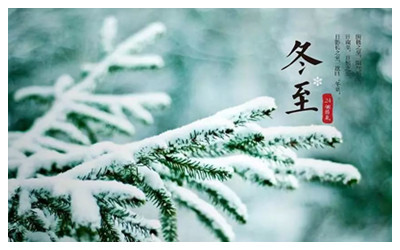Skype: neodalle-travel
Tel: +86 135 7447 2266
E-mail: sales@visitaroundchina.com

 Winter Solstice, 冬至 Dōngzhì, falling around December 22nd, is one of the traditional Chinese festivals and also one of the 24 solar terms.
Winter Solstice, 冬至 Dōngzhì, falling around December 22nd, is one of the traditional Chinese festivals and also one of the 24 solar terms. Customs to celebrate the Winter solstice
Traditions and customs for the day vary in different areas of China. In the northern part of China, people usually eat dumplings, wonton and mutton to celebrate the day. In the southern part, tangyuan and noodles are the festival food. In some places, people also sacrifice to the heaven and ancestors on the day.
The dumpling is the essential food for people in northern China. After the winter solstice, it will become colder and colder. By eating dumplings, people think they can avoid their ears from being frostbitten as the dumplings look like people’s ear.
Eating tangyuan is popular in southern China. It is a kind of glutinous rice ball with different fillings. It can be boiled or fried. People think after eating it, they will age one. People also use it to sacrifice or present to relatives and friends.
The tradition of eating wonton on the day is from Southern Song Dynasty (1127 - 1279 AD). It was for sacrificing the ancestors at that time. Later, the custom prevailed.
It has a custom of peping up on the winter solstice. As the mutton can pep people up, in some areas of northern China, people have the custom of eating the mutton.
Having a meal made of red-bean and glutinous rice is also popular for people in southern China. By eating it, people think ghosts and evil things can be driven away.
More to read about festival
Zhang Zhongjing (150-219), is a famous physician in Eastern Han Dynasty. He was once an official in Changsha. When he returned home for private life, he saw people lived a very hard life and their ears were red with cold in the snowing winter. He was very sad and let his disciple cook to drive out the chill with mutton, hot pepper and some medicine. Zhang let him boiled them first and minced them, then wrap them with flour. After boiling, he gave the food to the people there. By eating this kind of ear-like food, people’s ears were all cured. Later, every winter solstice, people cook such kind of food which was called dumplings to avoid ears from being frozen.
 Ask Questions ?
Ask Questions ?